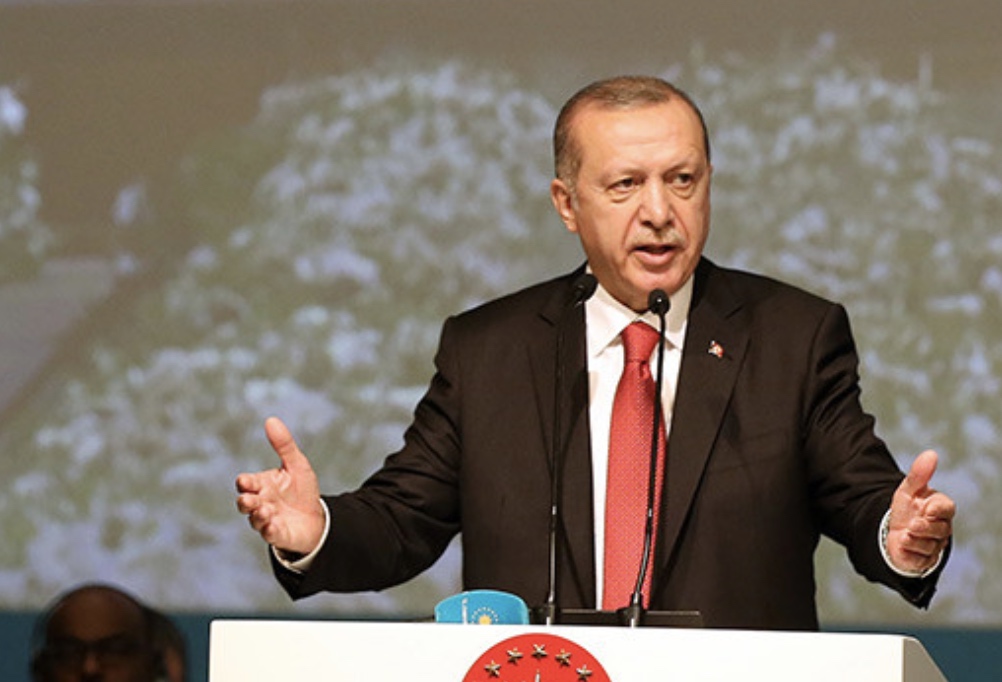By Janet Ekstract
ISTANBUL- Analysts and experts on Turkey would likely point out that the Turkish President’s recent exclusive invitation to rabbis attending their annual conference in Istanbul has political undertones. Erdogan flew the rabbis to the presidential palace in Ankara for a two-hour dinner and discussion several days ago, that ARIS Director and Ashkenazi Chief Rabbi, Mendy Chitrik labeled a ‘welcome surprise.’ The invitation came as the group was gathering at Istanbul’s Conrad Hilton Hotel for their annual Alliance of Rabbis in Islamic States (ARIS). trade
The invitation comes at a time when Erdogan must have surely recognized that Israel’s Arab neighbors have struck peace deals as well as deals with the Israeli government. Dubai now has kosher restaurants run by Orthodox Jews as well as businesses run by Jews. Kuwait and Oman have followed in Dubai’s footsteps as well. It stands to reason then that the Turkish president finally realized it’s good business to be on good terms with Israel and the Jewish community.
It is no secret that Erdogan’s views on Israel in the past did not strike a conciliatory chord with either Israel or the Jewish community in Turkey. It is also common knowledge that Hamas has a headquarters in Istanbul. So Erdogan’s move to extend an olive branch to the rabbis demonstrates a rare glimpse into the Erdogan that not many know. If nothing else, the Turkish president is a shrewd player in the global arena who clearly wants to remain a positive influence in the Middle East region. This is all the more reason for him to listen and get to know the Jewish rabbinate while exchanging ideas.
The Turkish leader’s previous rhetoric toward Israel stemmed from his distaste for the plight of the Palestinians and Israel’s approach. Erdogan has consistently called for a two-state solution along with other nations such as the U.S. and the EU. At the meeting, Erdogan reiterated this position and suggested the rabbis be part of the solution. He said: “We all have to strive for peace in the Middle East,” adding: “We do not want to see any conflicts in this geography that is home to three Abrahamic religions.” As Erdogan added: “I believe that a solution that prioritizes the sensitivities of all religious groups living in Jerusalem can be achieved.”
Clearly, the rabbis were pleased with the meeting as Rabbi Chitrik who spoke to the Jewish Telegraphic Agency said: “The president has listened very gracefully to all of the rabbis, has spoken in very strong terms against antisemitism and Islamaphobia and has reiterated the Turkish stance that denying the Holocaust is a crime against humanity.” The rabbi added that the Turkish leader gave his support for the construction and renovation of synagogues in Turkey and the Turkish Republic of Northern Cyprus.
Turkish-Israeli relations were tested over the years with several major incidents: the Mavi Marmara in 2010 and the U.S. Embassy move to Jerusalem in 2018. Despite those past setbacks, Turkey and Israel put their differences behind them several years ago. The two countries have been very strong trade partners and both have made efforts to move forward, in spite of differences of opinion.
The Turkish leader’s about-face with the international Jewish rabbis and Israel appears to have a much wider implication: good politics. Erdogan is keenly aware that Israel and its Arab neighbors have struck their deals and that it is now a new world order in the Middle East. And though Erdogan was excoriated by U.S. President Biden in May for statements he made during the Israeli-Gaza flare-up, the rabbis said they welcomed the opportunity to meet with the Turkish leader. As Rabbi Chitrik commented: “We are forward-looking rabbis. We are working in communities in the Muslim world, and we are looking to strengthen Jewish life. There are many things in the past, but we are looking forward, working on the present and working for the future.” The extraordinary meeting ended with the Sephardic Chief Rabbi of Turkey, Isak Haleva gifting Erdogan with an ornate menorah, the Jewish symbol of Chanukah commemorated each year in December.




